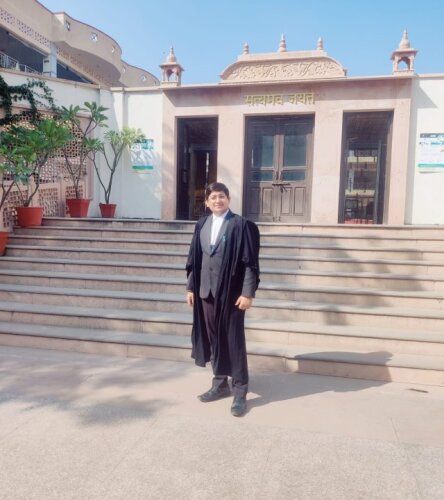Best Arrests & Searches Lawyers in India
Share your needs with us, get contacted by law firms.
Free. Takes 2 min.
Or refine your search by selecting a city:
List of the best lawyers in India
About Arrests & Searches Law in India
In India, the laws governing arrests and searches are primarily derived from the Indian Constitution, the Code of Criminal Procedure, 1973 (CrPC), and the Indian Penal Code, 1860 (IPC). These laws are designed to ensure the protection of individuals’ fundamental rights while maintaining public order and administering justice. The system delineates the conditions and procedures for lawful arrests, the rights of the arrested individuals, and the guidelines for conducting searches by law enforcement agencies. Understanding these laws is crucial for both the enforcement officers and citizens to uphold the justice system and protect against abuses of power.
Why You May Need a Lawyer
There are several situations where you might find yourself in need of a lawyer experienced in arrests and searches in India:
- If you have been unlawfully detained or arrested without proper procedure.
- If your premises or personal effects have been searched without a warrant or just cause.
- If there is a need to understand your rights regarding bail or legal representation after an arrest.
- If you are a victim of police misconduct or illegal search and seizure.
- If you are uncertain about the implications of any evidence obtained during a search or arrest.
- If you need to protect yourself or others from wrongful arrest due to mistaken identity or false complaints.
Local Laws Overview
Some key aspects of local laws in India relevant to arrests and searches include:
- Arrest Procedures: The CrPC outlines the procedures law enforcement officers must follow when arresting a person, including the necessity of an arrest warrant unless the offense is cognizable and allows for immediate arrest.
- Rights of Arrested Persons: The arrested individual has several rights, including the right to be informed of the grounds of arrest, the right to counsel, and the right to be presented before a magistrate within 24 hours.
- Searches: Searches can be conducted with or without warrants in certain situations, as allowed by the CrPC, but must follow prescribed procedures to ensure legality.
- Bail: Understanding whether an offense is bailable or non-bailable can impact the ability to secure release from custody quickly.
- Illegal Evidence: Any evidence obtained through illegal search or seizure may not be admissible in court.
Frequently Asked Questions
1. What is a cognizable offense?
A cognizable offense is one where a police officer has the authority to arrest without a warrant. Such offenses are generally serious in nature, like murder or kidnapping.
2. What are my rights during an arrest?
During an arrest, you have the right to know the reason for your arrest, the right to remain silent, the right to legal counsel, and the right to be presented before a magistrate within 24 hours.
3. Can the police search my home without a warrant?
Generally, a warrant is required to search a home, but there are exceptions, such as a situation where there is an imminent threat to life or evidence could be destroyed.
4. What should I do if I am unlawfully detained?
If detained unlawfully, it is crucial to remain calm, ask for reasons for the detention, request a lawyer, and reach out to someone who can assist you in challenging the detention in court.
5. What is preventive detention?
Preventive detention refers to the incarceration of individuals deemed a threat to public order or national security before any crime is committed. It is controversial and meant to prevent rather than punish.
6. How can I get bail in India?
The possibility of bail depends on whether the offense is bailable or non-bailable. For bailable offenses, bail is a matter of right. For non-bailable offenses, it requires a court order.
7. Can I refuse a search?
If the search is conducted with a valid warrant, it cannot be refused. However, without a warrant, you can ask for the legal basis of the search and might be able to refuse it unless certain conditions are met.
8. What happens if evidence is obtained illegally?
Evidence obtained from unlawful searches might be inadmissible in court. A legal expert can help determine the impact of such evidence on a case.
9. What role does a magistrate play in the arrest process?
A magistrate ensures that the arrest is legal and that the individual’s rights are protected. They review the case and decide on matters like bail.
10. What is a Section 41 CrPC notice?
A Section 41 notice allows the police to summon an individual for inquiry instead of arresting them for offenses that do not require immediate detention.
Additional Resources
If you need legal advice or further information about arrests and searches in India, consider reaching out to the following organizations or resources:
- National Legal Services Authority (NALSA) - Provides free legal services to the underprivileged.
- State Human Rights Commissions - Protects rights and addresses grievances related to human rights violations.
- Lawyers Collective - Offers advice and representation for various legal issues.
- India's Ministry of Law and Justice - Provides official legislative documents and updates.
Next Steps
If you believe you require legal assistance regarding an arrest or search, it is advisable to:
- Contact a lawyer who specializes in criminal law and has experience with arrest and search cases.
- Gather and organize all relevant documents and information regarding the incident.
- Ensure you understand your rights and obligations regarding the situation.
- Be proactive in seeking legal advice to avoid complications and ensure a fair process.
Legal situations involving arrests and searches can be complex, and obtaining professional guidance helps ensure your rights are protected and interests represented effectively.
Lawzana helps you find the best lawyers and law firms in India through a curated and pre-screened list of qualified legal professionals. Our platform offers rankings and detailed profiles of attorneys and law firms, allowing you to compare based on practice areas, including Arrests & Searches, experience, and client feedback.
Each profile includes a description of the firm's areas of practice, client reviews, team members and partners, year of establishment, spoken languages, office locations, contact information, social media presence, and any published articles or resources. Most firms on our platform speak English and are experienced in both local and international legal matters.
Get a quote from top-rated law firms in India — quickly, securely, and without unnecessary hassle.
Disclaimer:
The information provided on this page is for general informational purposes only and does not constitute legal advice. While we strive to ensure the accuracy and relevance of the content, legal information may change over time, and interpretations of the law can vary. You should always consult with a qualified legal professional for advice specific to your situation.
We disclaim all liability for actions taken or not taken based on the content of this page. If you believe any information is incorrect or outdated, please contact us, and we will review and update it where appropriate.
Browse arrests & searches law firms by city in India
Refine your search by selecting a city.
















